Healthcare data is packed with valuable insights, but much of it remains unstructured. Natural Language Processing (NLP) in healthcare enables providers to unlock the potential of this unstructured data, particularly within Electronic Health Records (EHR). By extracting meaningful information from vast datasets, NLP enhances decision-making and enables more personalized care for patients.
The global market for NLP in healthcare and life sciences is predicted to reach $3.7 billion by 2025, with a Compound Annual Growth Rate (CAGR) of 20.5%. As healthcare continues to evolve, the demand for innovative technologies like NLP is surely on the rise.
This article delves into 8 applications of NLP in healthcare, exploring the huge benefits it brings to patients, providers, and healthtech organizations.

What is Natural Language Processing in Healthcare?
What is It?
Natural Language Processing (NLP) is a specialized branch of Artificial Intelligence (AI) that enables computers to understand, interpret, and process unstructured human language. Using machine learning algorithms, linguistic rules, and deep learning models, NLP identifies patterns in human communication and transforms them into actionable insights.
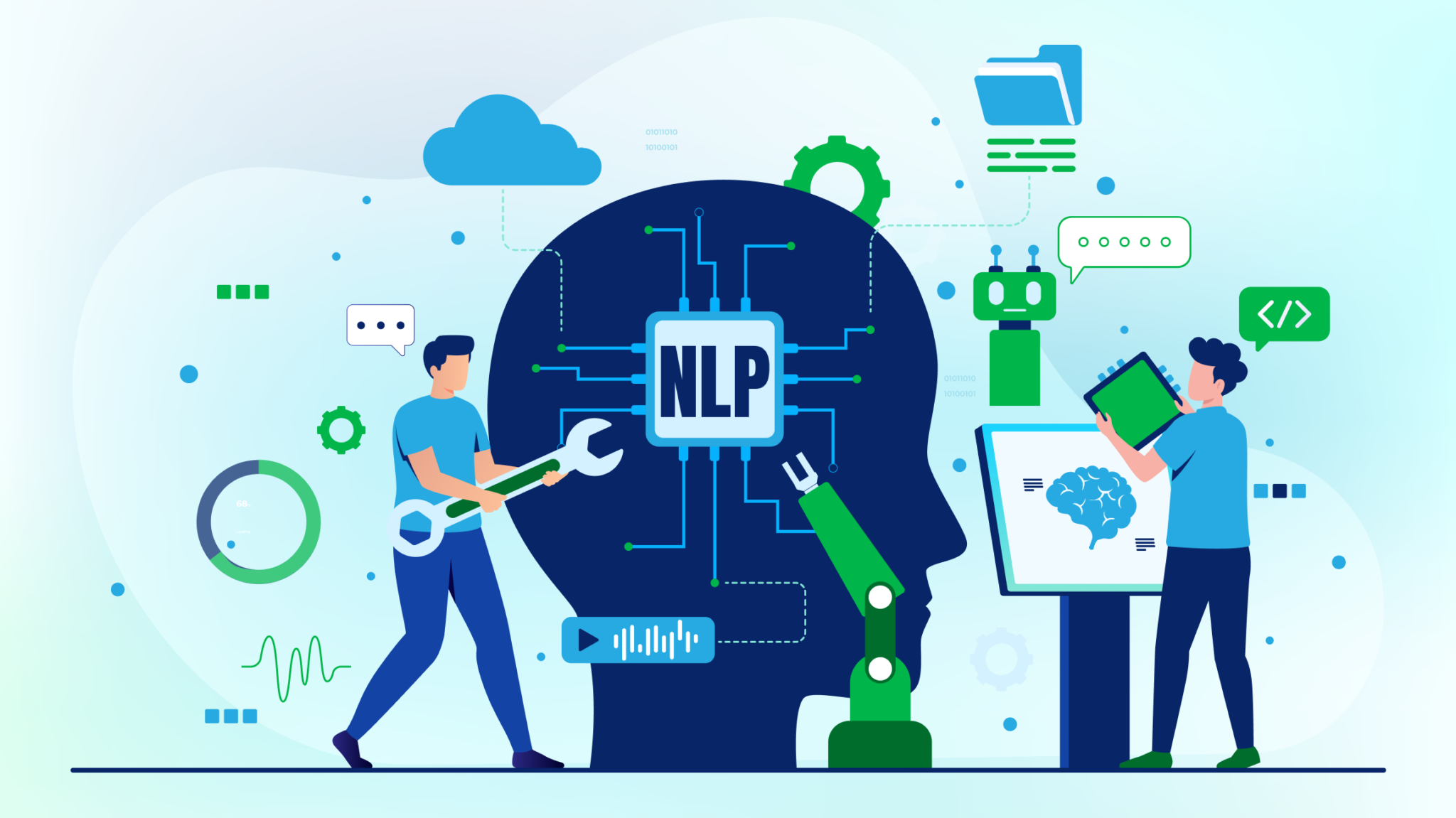
NLP proves beneficial for many industries through its ability to analyze unstructured data, automate repetitive tasks, and enable real-time insights. From enhancing customer experiences in retail to improving decision-making in finance, NLP has transformed how organizations process and utilize information. In healthcare, the technology helps the industry maximize the value of unstructured data, such as clinical notes and patient records.
How Does It Work in Healthcare?
In the healthcare industry, NLP systems process medical documents by recognizing not only characters and words but also understanding their meaning. For example, NLP can distinguish between a patient’s name and a disease symptom, or even identify when a document contains information about multiple patients.
After analyzing the input, NLP uses a combination of AI techniques to extract and format data from the medical documents. The system can accurately segment details, such as patient IDs, prescriptions, and symptoms, and map them to the correct fields in Electronic Health Record (EHR) systems.
Over time, advanced NLP solutions, which integrate machine learning and AI, can improve their accuracy by learning from data patterns, becoming more intelligent and efficient at handling complex medical information.
Benefits of Natural Language Processing in Healthcare
NLP offers a wide range of benefits for organizations within the healthcare industry. Below are some key advantages healthcare organizations can gain from implementing this technology.
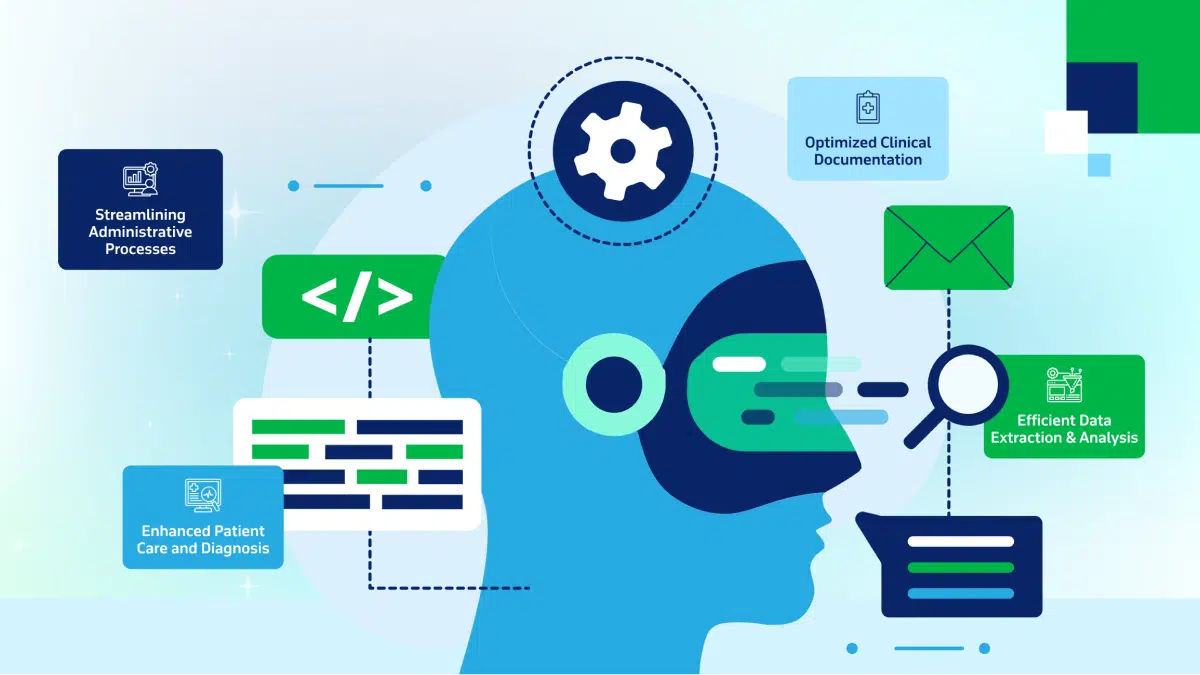
1. Optimized Clinical Documentation
With around 80% of medical data being unstructured, NLP automates the extraction of critical information from sources like handwritten clinical notes, reducing errors and speeding up documentation. Improved data accuracy means more reliable patient records, enabling better decision-making and higher-quality care.
2. Enhanced Patient Care and Diagnosis
By automating data extraction and entry, NLP reduces the time hospital staff spend on manual tasks, allowing physicians to prioritize critical patient needs. The ability to quickly identify, organize, and format medical data from unstructured documents ensures that doctors can prioritize patient needs, elevating the standard of care.
3. Efficient Data Extraction and Analysis
AI-powered NLP models process vast amounts of unstructured medical data, such as research papers and clinical trial reports, to extract and summarize essential points. By revealing patterns and connections in medical datasets, NLP advances decision-making and accelerates progress in healthcare innovation and patient care.
4. Streamlining Administrative Processes
Automating tasks such as clinical documentation and data entry significantly reduces the time spent on manual work, alleviating repetitive burdens for healthcare staff. Lower administrative workloads contribute to reduced physician burnout, enabling a stronger focus on patient care.

8 Use Case of Natural Language Processing in Healthcare
Natural Language Processing is transforming healthcare with its ability to analyze and interpret complex medical data. Let’s explore 8 compelling use cases that highlight its impact on this field.
1. Clinical Documentation
Clinical documentation serves as a key use case for Natural Language Processing (NLP) in healthcare. NLP systems automate time-intensive documentation tasks associated with EHRs, enabling clinicians to focus more on patient care. Speech-to-text dictation and structured data entry enhance documentation speed and efficiency, while advanced tools like Nuance and M*Modal integrate team-based functionality and formalized vocabularies for precise data capture at the point of care.
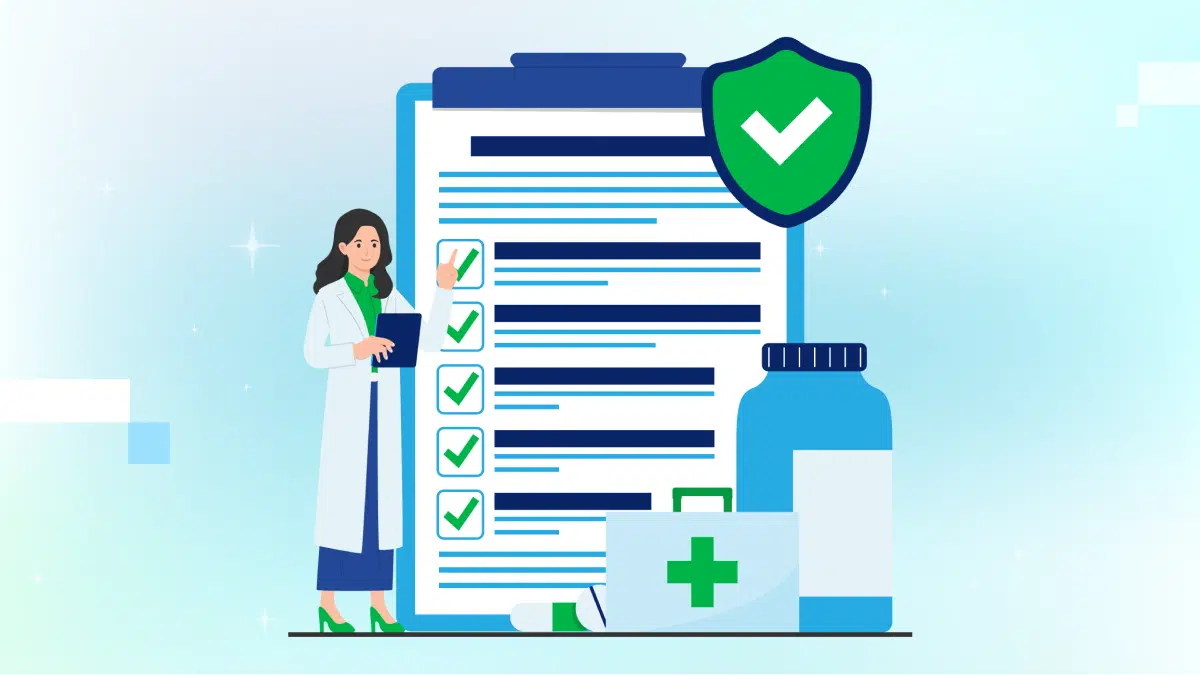
NLP also supports analytical efforts by extracting critical data from speech recognition tools, improving the quality of insights used for Value-Based Care (VBC) and Population Health Management (PHM). Emerging applications of NLP aim to analyze public datasets and social media to evaluate Social Determinants of Health (SDOH), enabling assessments of wellness policies and identifying broader health trends.
2. Speech Recognition
NLP has made significant strides in speech recognition, offering clinicians the ability to transcribe notes for efficient EHR data entry seamlessly. Front-end speech recognition allows physicians to dictate notes directly, enhancing mobility and streamlining workflow without being tied to a workstation. Meanwhile, back-end technology automatically detects and corrects errors in transcription before sending notes for human proofing, ensuring higher accuracy and reliability in the final documentation.
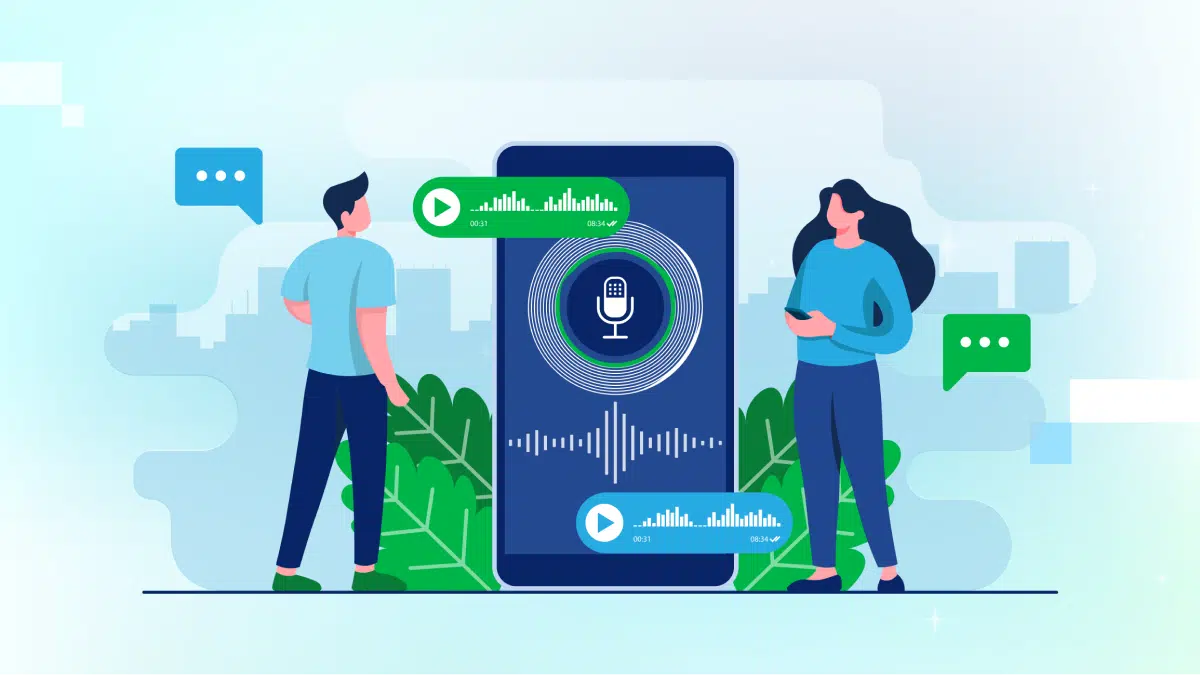
Startups leveraging advanced technologies like deep learning (e.g., OpenAI’s Whisper) are disrupting the speech recognition market, increasing transcription accuracy and expanding its potential medical applications.
3. Data Mining Research
Data mining plays a crucial role in reducing subjectivity and improving decision-making in healthcare. By combining data mining with healthcare technology and big data analytics, healthcare organizations can extract valuable insights from vast datasets. These insights provide actionable medical knowledge that can significantly enhance patient care and support more accurate clinical decisions.
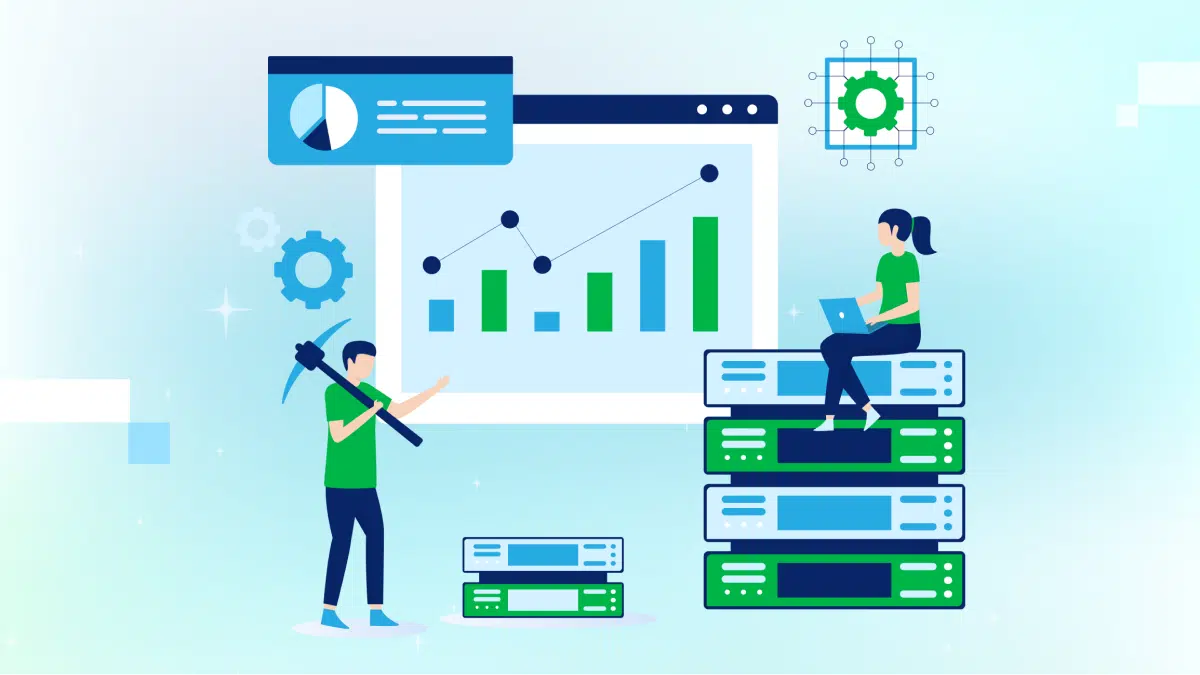
However, the effectiveness of NLP-driven data mining relies heavily on the quality of the datasets and the robustness of the algorithms, highlighting the importance of clean, structured data for optimal outcomes. When implemented effectively, data mining becomes a continuous cycle of knowledge discovery, helping healthcare systems to identify trends and patterns that drive innovation and continuous improvement.
4. Automated Registry Reporting
Automated registry reporting is a key NLP application in healthcare, helping to extract values for regulatory reporting. Health IT systems often struggle with reporting measures like ejection fraction, especially when not stored as discrete data values. NLP identifies ejection fraction mentions in clinical notes, saving the data in a structured format for use in analytics platforms.
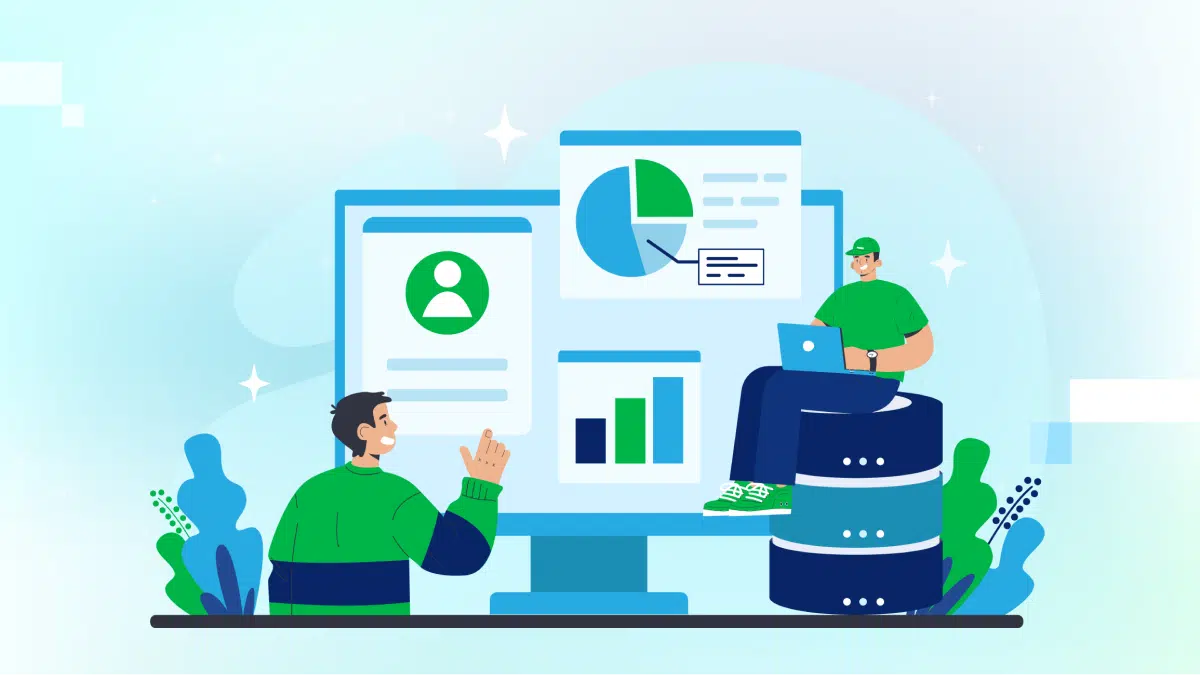
While implementing automated registry reporting can be complex due to variations in clinical note formats and terminologies, iterative training of NLP models can streamline the process by effectively extracting and organizing data. Leveraging NLP domain-specific expertise helps healthcare organizations improve the accuracy and efficiency of regulatory reporting.
5. Clinical Decision Support
NLP advancements are significantly improving clinical decision support (CDS) systems, helping clinicians make more informed and accurate decisions. Although these solutions are becoming more refined, areas such as medical errors still require better supervisory strategies. Recent studies demonstrate the effectiveness of NLP in detecting infections, providing valuable support in clinical decision-making.
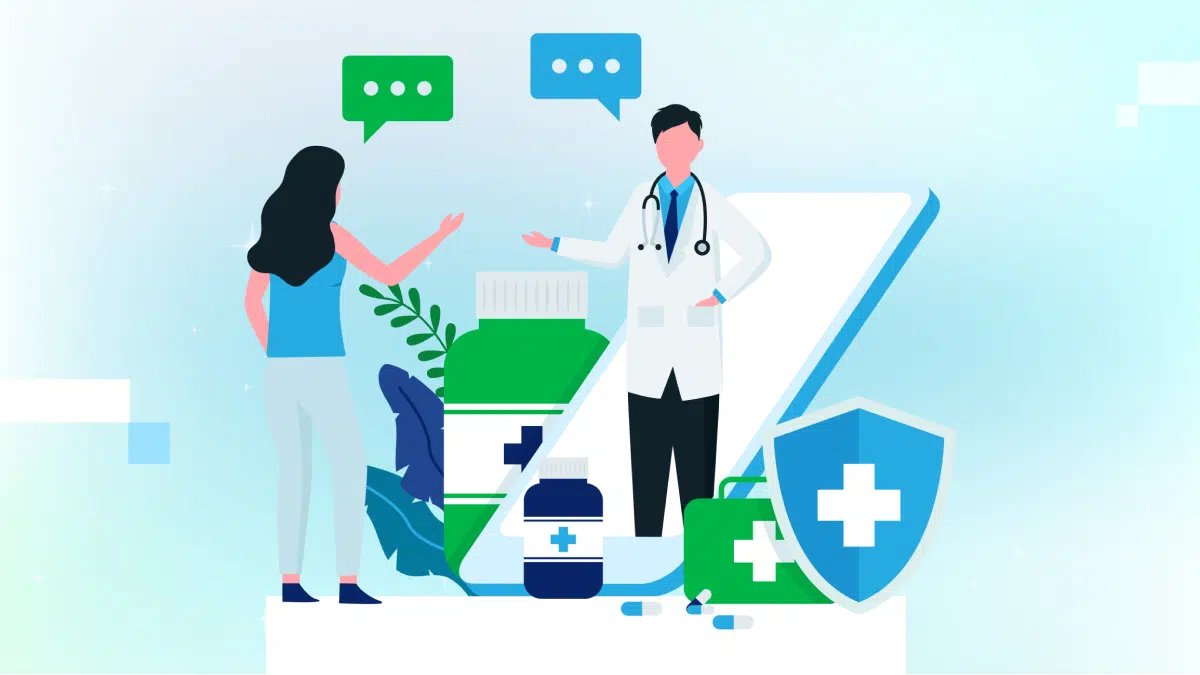
Leading vendors like M*Modal and IBM Watson Health are integrating NLP into their CDS systems to enhance diagnostic accuracy and clinical outcomes. Similarly, Isabel Healthcare utilizes NLP to assist clinicians with diagnosis and symptom checking, further improving the clinical decision-making process. However, challenges like handling ambiguous terms in medical contexts continue to require advanced disambiguation techniques.
6. Clinical Trial Matching
NLP is significantly advancing clinical trial matching, enabling more efficient identification of eligible patients for trials. By combining NLP with machine learning, healthcare systems can identify suitable candidates, a crucial step in advancing medical research.
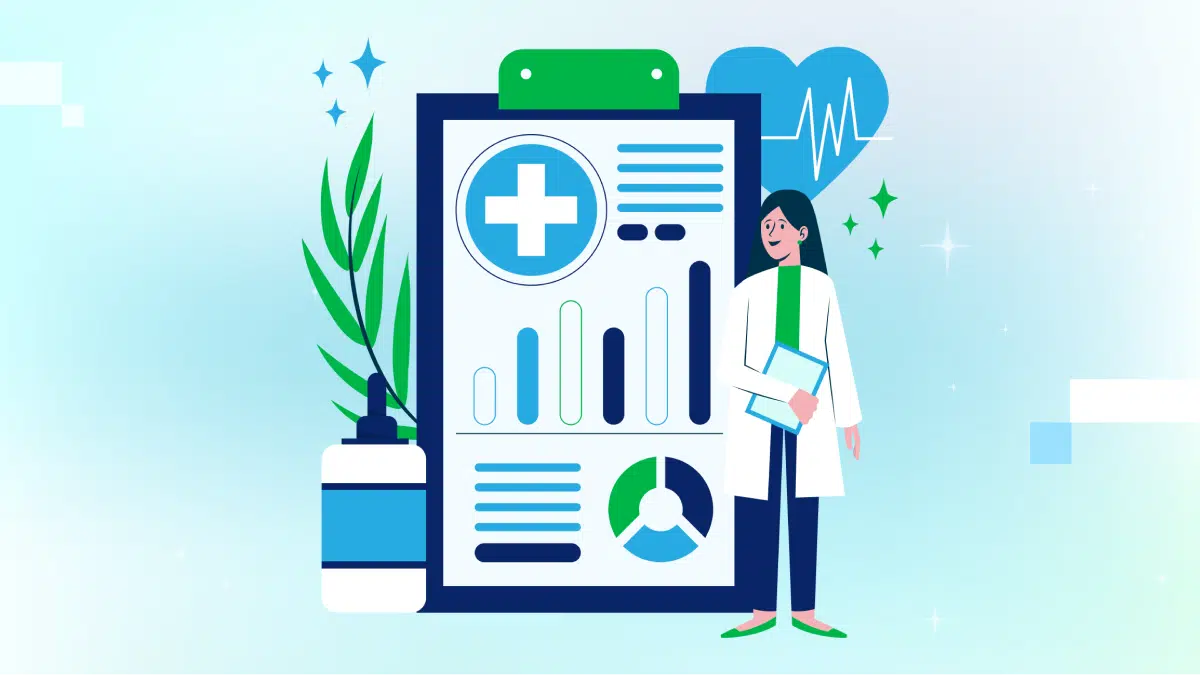
NLP engines are being developed to automate the trial matching process, reducing manual effort and enhancing efficiency. Companies like IBM Watson Health and Inspirata are leveraging NLP for oncology trials, improving the accuracy and speed of patient matching. Expanding NLP capabilities to rare disease trials or other underserved areas could further improve clinical research outcomes and trial success rates..
7. AI Chatbots and Virtual Scribes
AI chatbots and virtual assistants are gaining traction in the healthcare industry, although a complete solution has yet to be fully developed. Speech recognition apps are expected to assist in modifying clinical documentation, with devices such as Amazon’s Alexa or Google Assistant being ideal candidates. Collaborations between major companies like Microsoft and Google are working towards this goal, with other giants like Amazon and IBM likely to follow suit in developing these technologies.
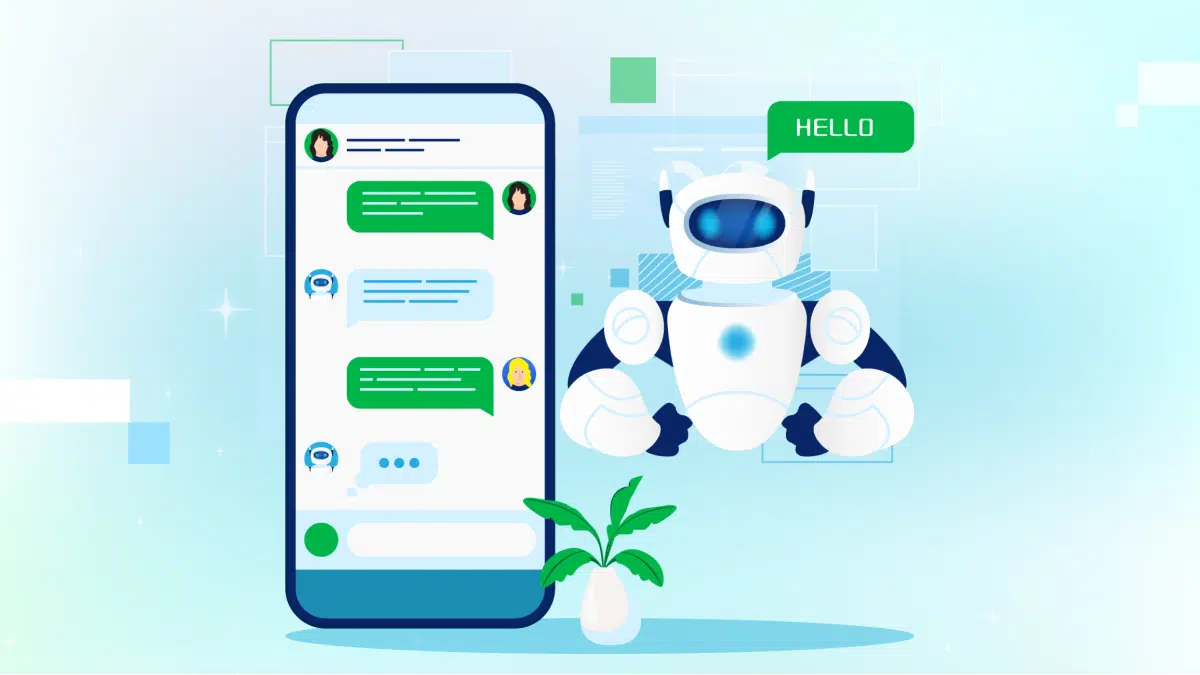
In healthcare, chatbots are increasingly used to streamline patient intake by capturing symptoms and directing patients to the appropriate provider. Advanced virtual assistants also use conversational NLP to collect personal health data and compare it to evidence-based guidelines, offering diagnostic suggestions that help healthcare providers make informed decisions.
8. Computational Phenotyping
NLP is revolutionizing clinical trial matching by enabling more precise phenotyping of patients for clinical research. Traditionally, phenotyping depended on medical professionals’ expertise, but NLP now allows phenotypes to be defined based on a patient’s current conditions as documented in medical records.
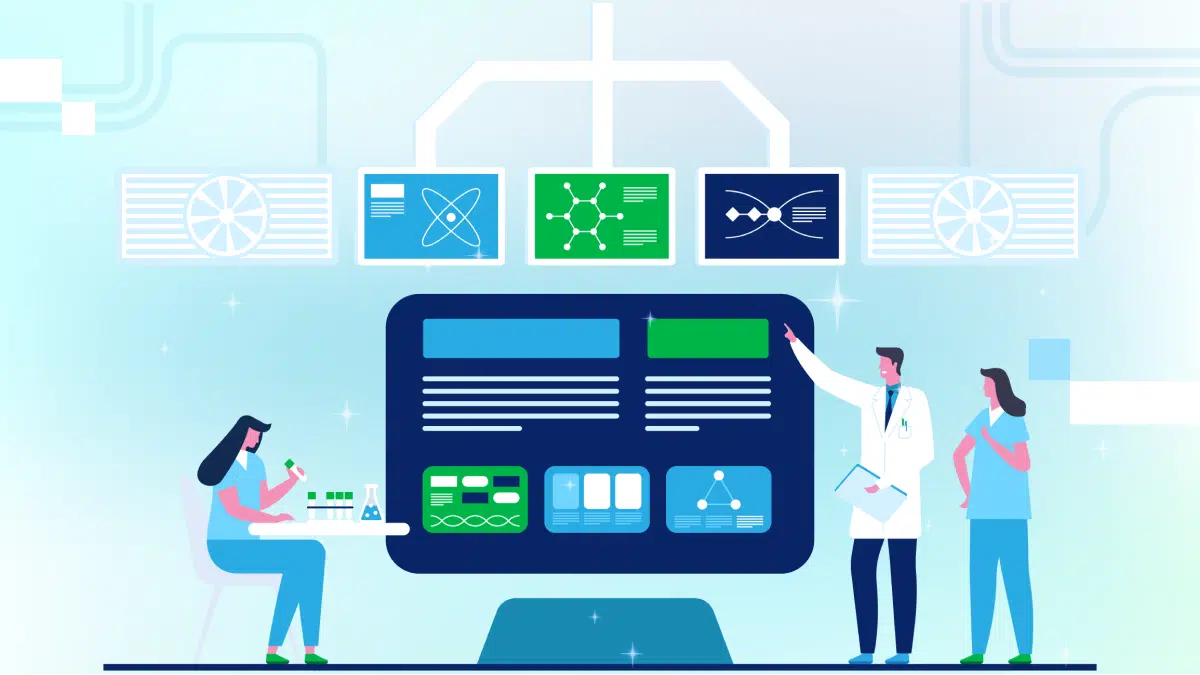
NLP can also analyze speech patterns, offering diagnostic insights into neurocognitive conditions such as Alzheimer’s, dementia, or other cardiovascular and psychological disorders. Partnerships like those between BeyondVerbal and the Mayo Clinic are working to identify vocal biomarkers for coronary artery disease while Winterlight Labs is advancing Alzheimer’s diagnosis through linguistic pattern analysis. However, large-scale validation of these techniques remains critical for widespread adoption..
Leveraging The Power of Natural Language Processing with KMS Healthcare
Unlocking the potential of NLP in healthcare begins with transforming unstructured text data into valuable, actionable insights. Yet, successfully leveraging NLP in healthcare requires a deep understanding of medical language and seamless integration with existing health IT systems to ensure maximum ROI and efficiency across clinical operations.
KMS Healthcare offers expertise to implement NLP into your healthcare systems, enhancing efficiency and service quality.
- Tailored ML and AI Integration: KMS Healthcare integrates and fine-tunes existing AI/ML tools to ensure they align with your healthcare platform’s needs.
- Expertise in Data Management: We excel in extracting, standardizing, and managing unstructured healthcare data to create actionable datasets tailored for NLP-powered solutions.
- NLP Solution Deployment: KMS Healthcare specializes in integrating NLP tools like chatbots and text analytics systems into healthcare workflows.
Contact us today to schedule a free consultation and explore how NLP can be integrated into your healthcare systems!